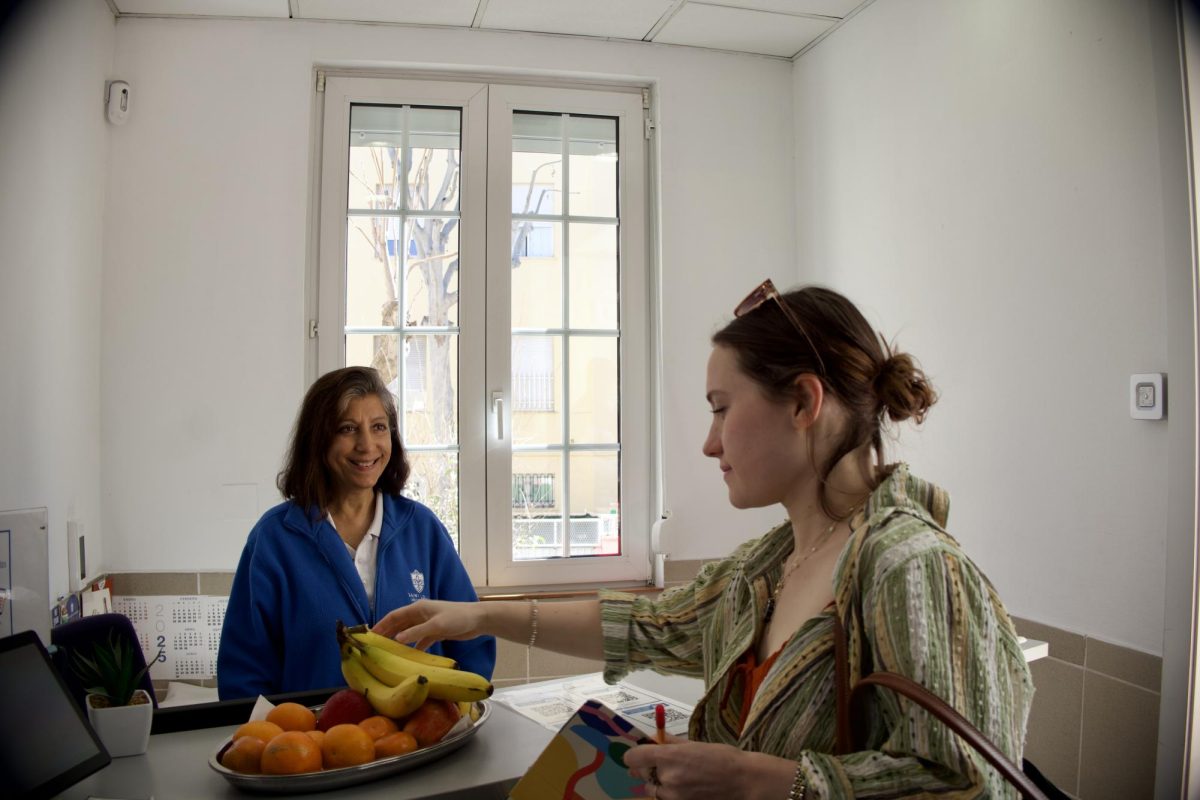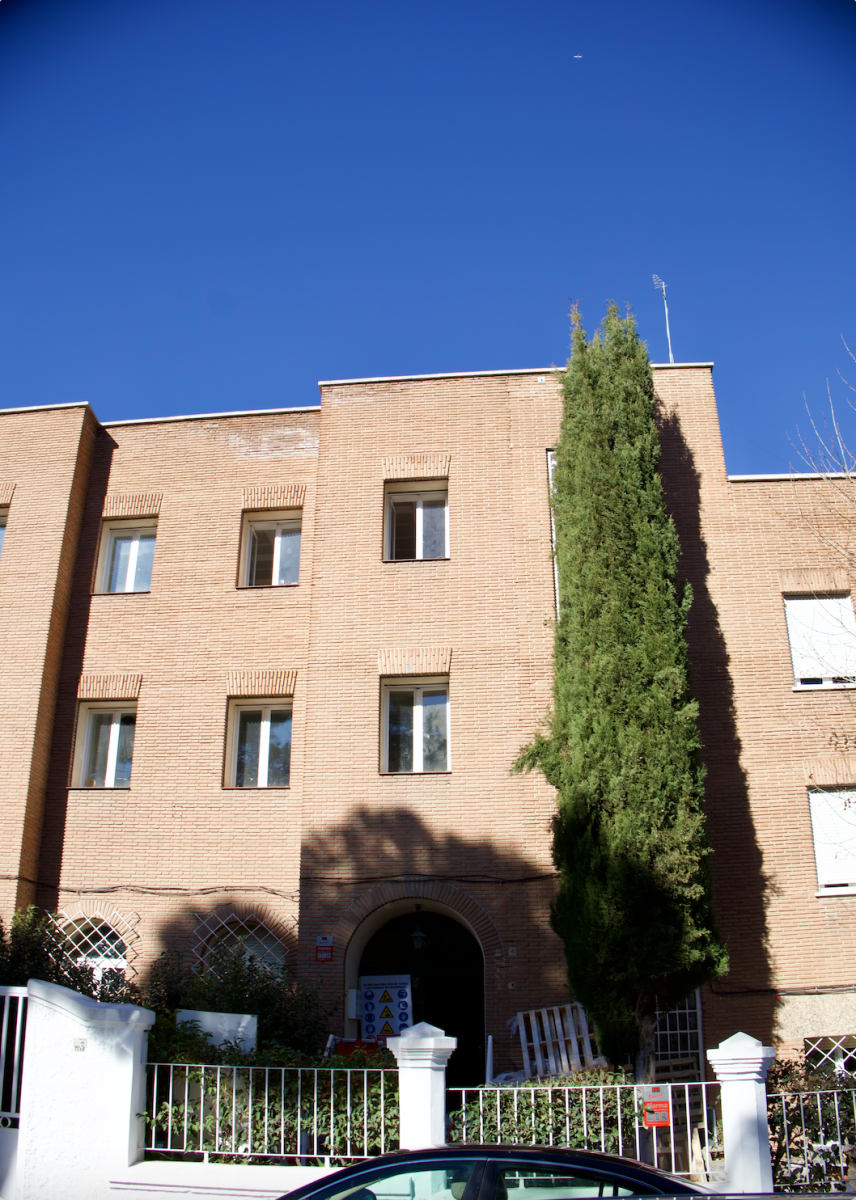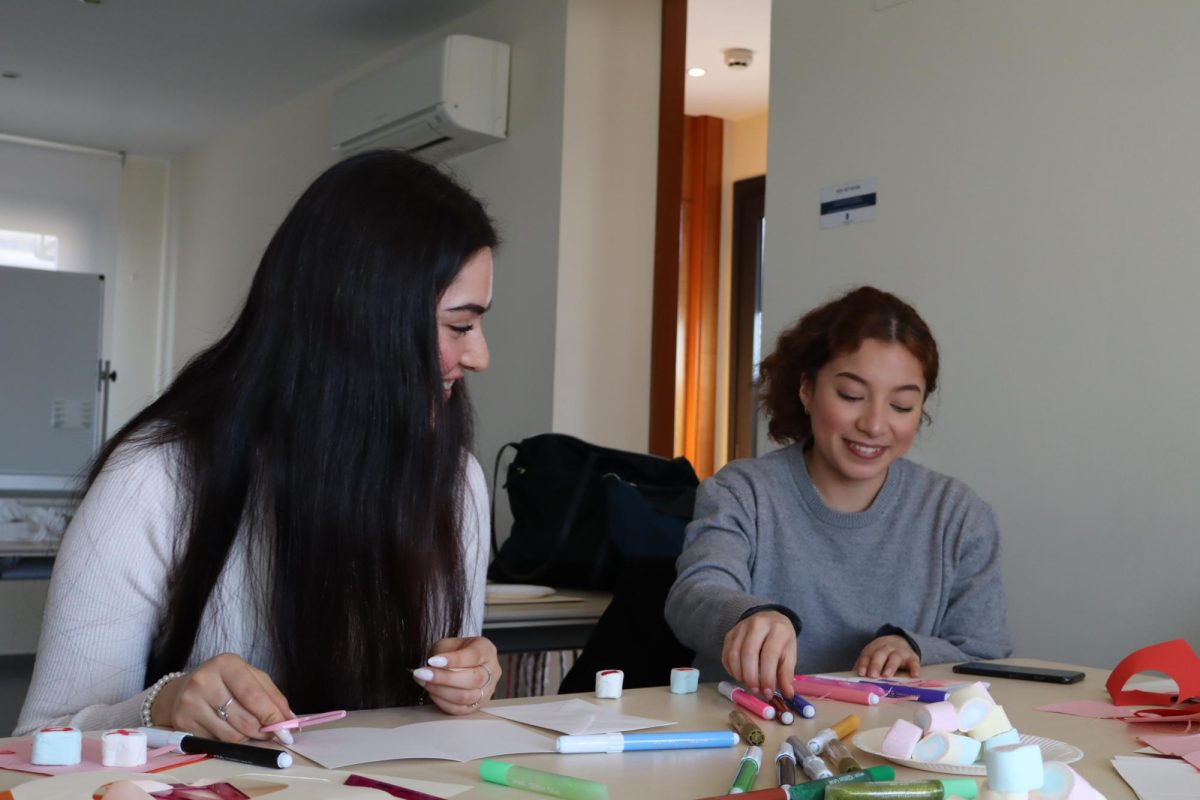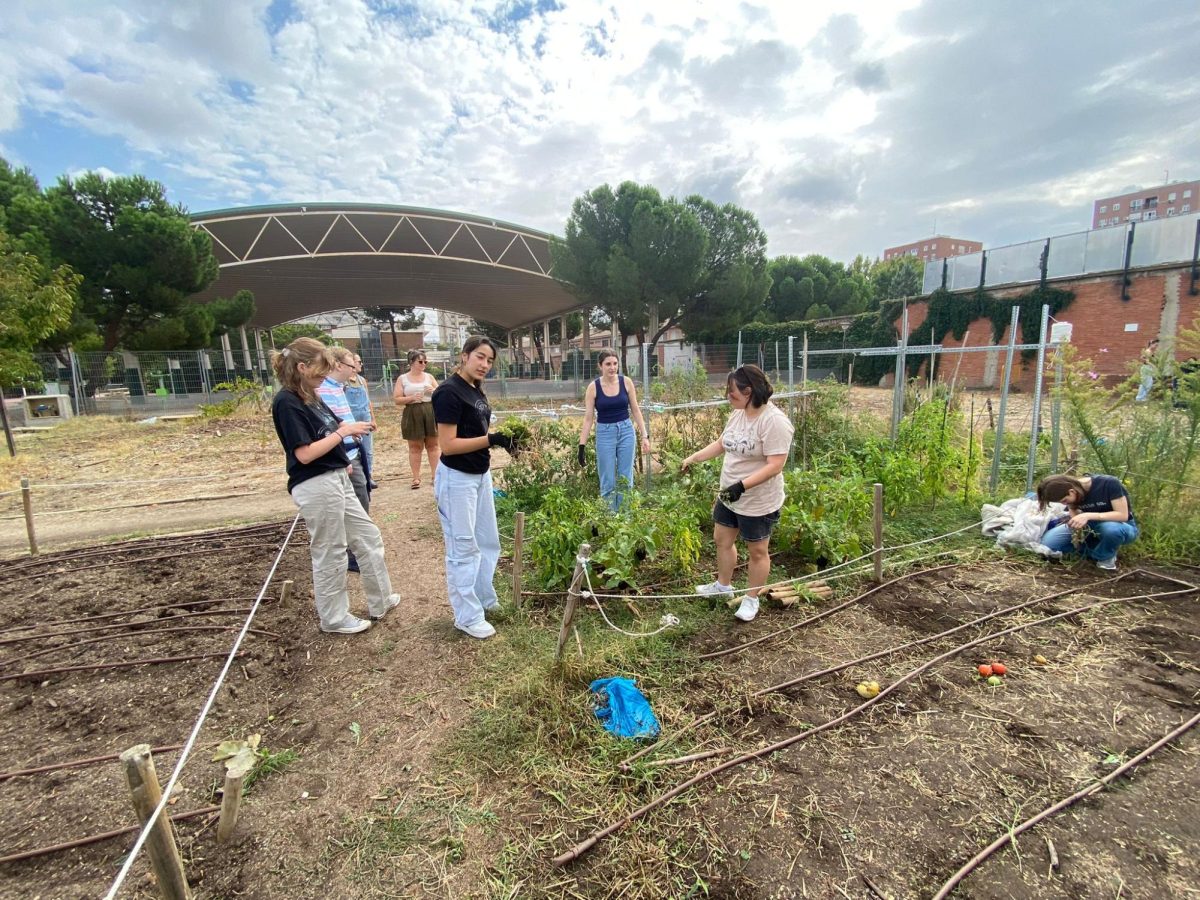MADRID, Spain – When the clock strikes 1pm on Thursday afternoon, high school students flood into the white-walled classroom of IES Jaime Vera. With enthusiasm to teach, Alexandra Baldwin, a 26-year-old English teacher from America, greets her students with a smile and a warm, “Hello everyone, welcome, welcome!”
Each student dodges lime green desks and the chairs that accompany them in order to find their “usual” seats. Spanish conversations are exchanged between the 15-year-old classmates before being cut off by their disappointed teacher. She disciplines them through the echoes of their whines and excuses.
There are more than eleven million residents who speak English fluently in Spain, according to the English Language Job Blog. The language can be heard almost everywhere. The standard is that most employees in stores, cafes, and clubs at least have a basic understanding and level of reciprocation. Non-working residents also use the language to communicate. This is seen by the majority of signs or instructions in Spain being in Spanish, with only an English translation offered underneath.
English is the medium for not only Americans to communicate with Spaniards, but also for Spaniards to communicate with residents of other countries. One and a half billion people speak English worldwide. Interestingly though, only 400 million of those people are native speakers.
English since first grade
Though the Spanish language is the native tongue in Spain, English trails behind as the second leading language spoken in the country. That’s why Spanish children are now taught from a young age that speaking English is important, with many of them even being raised bilingual in their households. Those who did not grow up with parents intent on teaching them the language have been exposed to the English speaking curriculum since their early years in school. According to TEFL, it is required by law that English is taught in all state schools in Spain starting from the first year of primary school.
Additionally, some Americans are yearning for change and travel in the wake of two years of lost time – due to the Coronavirus pandemic. The increased itch for travel, a desire to explore a foreign country, and take on a new role as a teacher has sparked the interest of many. For that reason, English teaching exchange programs have popularized within Spain, with ideal outcomes for teachers and students alike.
“Teaching in Madrid has shattered all expectations that I had of Spain in the best possible way,” says Julia Duncan – a 25-year-old teacher to 10th graders. “I am especially grateful for the cultural perspective that I have gained from my students. I would definitely call it a mutually beneficial experience.”
Through a laugh, she continues, “They laugh when I speak Spanish sometimes because I guess I sound super formal, so they teach me slang that makes me sound a lot cooler than I really am. They taught me what gringa meant by calling me it!”
Spaniards often feel pressure to perfect the English language – from recalling an extensive vocabulary to nailing an American accent. Additionally, they often struggle with grammatical rules and spelling. The intensity surrounding their execution of the language often hinders the confidence of students in the classroom.
“I see my students struggle with their confidence when it comes to English and I wish they would understand how impressive their understanding of the language is,” says Jack Lesesne, New York native and now English teacher. He continues, “I have noticed that my students particularly have trouble with words that sound or are spelled the same but have different meanings. For example, they cannot wrap their heads around the fact that the word read can be referred to in the past or present tense.”
Lesesne smiles with satisfaction whilst reminiscing on his own progress with the Spanish language. “My Spanish was nowhere near perfect when I first moved to Madrid, but I have knocked down language barriers between myself and native speakers. I also have a willingness to try and, of course, fail sometimes. It is so rewarding to know how much my Spanish speaking skills have improved since September 2020 when I arrived in Spain. It is a feeling I want for all of the kids I teach because I care about them and want them to feel successful.”
The English speaking programs are taught in a very hands-on manner in Spain, handing most participation over to students. Unlike lecture structured classes in the United States, the courses are instructed primarily through handouts, games, and projects. This way, teachers can be sure that students have a proper understanding of the material and are capable of utilizing the English language effectively.
In the brisk air of Baldwin’s classroom, student Juan Garcia scratches his brown hair in confusion with his left hand, while his right one is occupied gripping a black mechanical pencil tightly between his pointer and middle finger. His frustration with the worksheet on verb tenses that lays still in front of him is apparent to his teacher and classmates. He is perplexed about why a simple “ed” is added to the end of some words to make them past-tense, but the rule differs for other verbs. He lets out a loud sigh.
“Some of the rules of the English language just do not make any sense,” says Garcia.
“He is right. The verb tenses do not make as much sense in English as they do in Spanish” says his desk-neighbor through a cheeky grin, as if insinuating that Spanish is superior.
“Alright, alright.” says Baldwin. As she approaches the pair of boys, she says, “I am sure it is nothing that I can’t explain. What can I help you two with?”
Down the hall, 26-year-old IES Jaime Vera teacher Gabi Rossillo smears blue marker across the freshly cleaned white-board in the front of her 8th grade classroom. Past, present, and future conjugations cover half of the board, with the other half detailing a seemingly complex written homework assignment.
When asked about the assignments her class is asked to complete, Rossillo flashes a proud smile. “They tackle hard assignments–from readings and writings to verbal exams, and everything in between,” she says. “I am so appreciative of their positive attitudes towards learning English. It is a daunting language to learn, but they always come prepared to class and complete work by deadlines.”



































